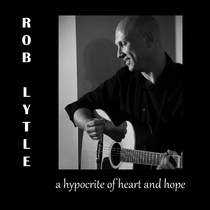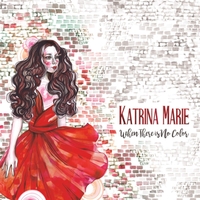 Rob Lytle has released another album of charming, winsome singer-songwriter material. His new disc, A Hypocrite Of Heart And Hope, travels many personal paths. One cannot help but fall in love with Lytle’s witty, heartfelt reflections on all that has befallen him in his past. He sings these wistful memory songs, down on his luck stories, and failed relationship songs with gentlemanly aplomb and easy going country music influences. These songs gain most of their quality from the palpable personality Lytle injects into each one.
Rob Lytle has released another album of charming, winsome singer-songwriter material. His new disc, A Hypocrite Of Heart And Hope, travels many personal paths. One cannot help but fall in love with Lytle’s witty, heartfelt reflections on all that has befallen him in his past. He sings these wistful memory songs, down on his luck stories, and failed relationship songs with gentlemanly aplomb and easy going country music influences. These songs gain most of their quality from the palpable personality Lytle injects into each one.
“Come South” opens the new album with Lytle’s smoothly handsome vocal unfurling his message over homey piano tinkling and pedal steel guitar lines. One can picture the singer-songwriter in a contemplative mood in his own home as this song is delivered with a personal touch that invites the listener into his world. Focusing on an unrequited love, Lytle lists all of the warm, subjective reasons why his beloved should choose him. As a singer, he brings all of his quiet longing to vivid life, his lyrics flowing out of his hopeful yet somber heart.
Lytle rocks things up a bit on “The Way We Used To Love,” a reflection on a relationship’s early stages. His desire to fall in love with her all over again comes across with a hearty zest, making one feel his enthusiasm for this relationship. A catchy ditty, this one is sung with as much love as its lyrics express.
“Mother, Can You Hear Me?” is a quieter piece. Sung to his most important mentor and role model, Lytle fills this one with a heft of feeling, even though he sings it with an understated approach. He also loads the lyrical content with numerous mother-son images that bring the messages home to listener. It’s a personal reflection, but it’s also universal, as most of us have felt and thought this way about this kind of relationship.
Lytle moves at a steady, jaunty clip on “Pretending That You Love Me.” He calls out a deceitful partner with his smooth voice riding an up-tempo pace. Lynn Williams’ drumming and Barry Walsh’s keyboard playing create a warm vibe around the understated vocal approach, adding another layer of accessibility that cleverly and cutely belies the seriousness of the topic. There is a winsome country music feel underneath it all that keeps it hearty and homey, which, ironically, isn’t the intent of the lyrics, which makes this number feel like something from an adjusted partner looking back on things with a sense of humor.
“Trouble” moves along to a rolling shuffle beat while being graced by some clean, country guitar picking. Guitarist Thomm Jutz(who also produced the album) gives it enough of an edge here to make one feel the sense of erupting “trouble” before it even happens. “Drunk Girl” continues a similar theme with a similar edge in the instrumentation. Here, Lytle sings in a mellow honky tonk style while country piano and pedal steel play over a down home rhythm section groove. These musical colorings add to the light hearted approach to a serious subject, and that has always worked for Lytle. Meanwhile, pedal steel guitarist Terry Crisp offers a lot of ear candy with his deliciously, rangy line of sweet, tender, emotive melody.
Lytle gets real during “Oh Dying,” an ode to a friend who was on his way out of this world. Despite the seriousness of the subject matter, the singer-songwriter maintains a perfect balance between sorrow for his impending loss and hope for a better place for a soul to travel to. Voice and acoustic guitar are the only tools he needs to reach his listener, his friend, and his own new found faith in a hope that there has to be something better on the other side.
“Little Loser” is an ode to a childhood friend. The song is a reflection on his childhood experience playing with and protecting a fragile friend and the insights he gets about himself and what motivated him to look out for her. Lytle sings this with a sturdy lilt, letting his natural timbre inform the swishes of emotion inside this story. Harmony vocals from Britt Savage fill out the emotional heft of this song while Jutz’s guitar phrase carries the tenderness along its unwavering narrative arc. The whole things moves forward with beautiful honesty and musical aplomb.
In “Daddy Let Me Help You” the singer-songwriter calls out to his father to trade places, to let him be the rock of support he provided for his son. Again, Lytle shares a personal reflection and conjures something we can all relate to. His beautifully smooth vocal timbre and considerate delivery make it easy to digest all of the familiar tenderness this piece has to offer.
Lytle closes out his album with “My Masterpiece.” Here, the singer-songwriter sings about writing songs. He amusingly and cleverly discusses the use of inappropriate words in the right ways. Comparing it to historical masterpieces shows the burden that his work places upon his shoulder. He also quips about how the “lack of human virtue” gives him something to base a masterpiece on. Aside from the lyrical insights, Lytle puts this across with the gentlest of vocal and musical approaches, which, in turn, makes the images and story even stronger, letting it stand out without hitting the listener over the head with it.
Lytle is a singer-songwriter on a virtuous mission. He shares his personal experiences in a way that all of his listeners can appreciate and relate to. He also communicates his raw emotions and personal thoughts with one of the most striking voices on the singer-songwriter scene. His vocal approach is to masterfully wrap his voice around his narrative arcs with the warmest and greatest of ease.

